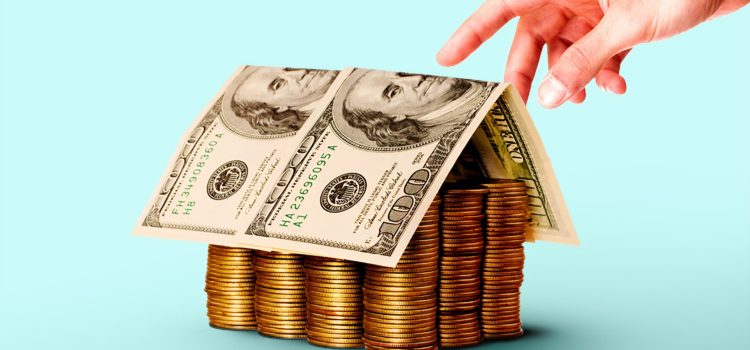

This article is an excerpt from the Shortform book guide to "The Automatic Millionaire" by David Bach. Shortform has the world's best summaries and analyses of books you should be reading.
Like this article? Sign up for a free trial here .
What are the benefits of owning a home? In a financial sense, how does renting compare to owning a house?
According to David Bach, the author of The Automatic Millionaire, you’re more likely to build long-term wealth if you own your own home and accelerate your mortgage payments. Bach believes that renters are less able to build wealth because they’re funneling the majority of their money towards their rental expenses.
In this article, we’ll first explore the benefits of owning your own home. Then, we’ll cover how you can get on the property ladder and automate your payments to pay off your mortgage as quickly as possible.
The Benefits of Owning a Home
According to Bach, the average American renter has a net worth of less than $4,000. In contrast, homeowners have an average net worth of $140,000. In other words, homeowners are more than 35 times richer than renters. This is because homeowners end up spending less money than renters in the long run. Let’s say you rent an apartment at $1,500 a month over 30 years—at the end of this period you’ll have spent $540,000 and have to continue to pay rent. On the other hand, if you buy a house and you pay $1,500 on your mortgage for 30 years, at the end of this period you’ll own your own home (no more payments) and be free of debt.
In addition, Bach notes buying a home will provide financial security in the form of equity—over the long term, the value of real estate investments always increases (the average annual return since 1968 is 5.3%).
| The Disadvantages of Owning a Home In contrast to Bach, Remit Sethi argues that the benefits of owning a home are outweighed by the disadvantages. Sethi argues that you shouldn’t think of your home as an investment as the expenses involved will make it difficult for you to make any money from it. He claims that: Your costs will be higher than they are when you rent because you’ll be responsible for insurance, property taxes, and maintenance.You’ll only gain an average of 0.6% a year on this asset compared to an average annual return of 8% on the stock market. You’ll end up paying additional taxes and fees when you sell your home. You’ll miss out on the amenities and perks offered by rentals in the same price range as it works out far more expensive to buy properties in convenient areas (close to public transport, local schools and shops, and so on) than it does to rent them. So, while Sethi doesn’t discourage you from buying a home, he does insist that it’s not for everyone—consider whether you’re happy with the costs (not just financial) involved in owning your own home before you take the leap. |
Bach suggests you follow three steps to buy a house: pay your down payment, choose the right mortgage payment plan, and accelerate your mortgage payments. Let’s explore each in detail.
Step 1: Pay Your Down Payment
The main reason why people don’t buy a home is the belief that they need to pay thousands of dollars upfront to get a mortgage. Bach argues that these people are wrong—there are many programs designed to enable first-time homebuyers to finance up to 100% of the downpayment for the home they want to purchase. These programs help renters come up with a down payment so that they have more of a chance to apply for a mortgage. Bach suggests that you research housing finance agencies if you need help putting together a down payment.
| Save for Your Down Payment Bach doesn’t provide information regarding why companies would offer to provide you with a loan for a deposit, and it’s unclear whether these loans would incur additional costs or have strings attached—such as whether you’ll be restricted to buy specific types of houses or limited by location. In addition to researching the options he mentions and seeking advice from the resources listed above, you could also start saving for your down payment while you search for a home to buy. The more you save, the more options you’ll have when it comes to choosing and buying your own home. Pape (The Barefoot Investor) suggests the following ways to save for a down payment while you’re renting: Set aside 20% of your monthly income.Consider living on a single wage (if you have a partner) and set aside the rest.Cut your rental expenses by living somewhere cheaper.Earn extra income by taking on freelance work and set aside all of this income. Finally, calculate how long it will take you to save for your chosen property if you funnel all of these savings and extra income into your down payment fund. |
Step 2: Choose the Right Mortgage Payment Plan
Bach claims that you should be able to spend between 29-41% of your gross income on housing expenses—which include your mortgage, taxes, and insurance. Aim for the minimum if you still have debts to clear and more if you don’t have any debts to pay off. For example, if your salary is $40,000 a year, you can afford to pay from $11,600 a year ($967 a month) to $16,400 a year ($1,367 a month) towards all of your housing expenses.
Bach also suggests that you research mortgage providers to compare interest rates and figure out how much you can afford to spend on a home.
Pros and Cons of Popular Mortgage Plans
There are multiple mortgage payment plans to choose from and each comes with its own advantages and disadvantages:
- Fixed-rate mortgages: These mortgages’ interest rates stay the same for the full loan period. (The loan period is usually either 30 years or 15 years.) This protects you from fluctuations in the economy and keeps your monthly payment consistent. However, you’re also locked into your plan for a long period, unless you remortgage.
- Variable-rate mortgages: These mortgages’ interest rates stay the same initially for an agreed period, then fluctuate based on the economy. These plans tend to offer the lowest initial interest rates, making your initial mortgage payments lower. However, if interest rates increase following your initial fixed-rate period, you may struggle to make your payments.
Step 3: Accelerate Your Mortgage Payments and Build Your Equity Fast
Overall, Bach recommends fixed-rate mortgages, as he believes these have the most benefits. However, he notes that a drawback of these plans is that you’ll end up paying a huge amount of interest over the full mortgage term (and at the beginning of the term, you’ll pay mostly interest, accruing minimal equity in your home).
However, he insists that you can avoid the disadvantages of fixed plans if you accelerate your mortgage payments: in other words, pay more towards your mortgage each month or year than you need to. This enables you to cut years off your payment plan, thus reducing the amount of interest you pay in total (since interest accrues exponentially over time—thus, cut the time spent paying your mortgage, and you cut the amount of interest you pay).
| The Disadvantages of Paying Off Your Mortgage Bach strongly believes that paying off your mortgage will lead to more wealth so he doesn’t cover the disadvantages of taking this route. While accelerating your mortgage payments will save you thousands of dollars in interest, there are a few possible drawbacks to consider before you decide to proceed with this plan: Access to cash: Even with accelerated payments, it will take years to pay off your mortgage. During this time, you won’t be able to access the additional money without refinancing or selling your home—make sure you have enough money in savings accounts to cover emergencies. Tax breaks: The interest you pay on your mortgage is tax-deductible (you receive a tax rebate for these payments). Once you pay off your mortgage, you won’t be able to receive this tax benefit. If you’re a landlord, this could have a massive impact on your tax payments. Credit score: Your credit score hinges on proof of your ability to reliably make regular payments to pay off your loans. Once you pay off your mortgage, this loan will no longer be factored into the equation used to determine your credit score and could lead to a slight drop (this impacts your ability to get a new loan). Pay-off: The money you invest into your home would earn substantially more if you invested it into stocks (4.5% for a home and 10% for stocks based on the average rate of return for the last 90 years). |
Check With Your Mortgage Provider
The longer it takes you to pay off your mortgage, the more your mortgage provider benefits—it makes a profit from all of the additional interest you pay. Some providers may penalize you for attempting to pay your mortgage earlier while others may not. Therefore, once you’ve decided on how you intend to accelerate your mortgage payments, Bach suggests that you contact your (current or prospective) mortgage provider to check whether you’ll be penalized for making extra payments.
| Why Mortgage Providers Penalize Extra Payments You may be wondering why mortgage providers penalize you for attempting to clear your debts—don’t loan providers want people to pay them back as quickly as possible? To clarify this, we’ll briefly explain how mortgage providers make a profit. There are two parts to your mortgage payments: the actual loan amount and the interest fees. Mortgage providers rely upon the interest you pay to make a profit—this profit allows them to provide more loans and make more money. Mortgage providers are able to offer loans with low interest rates because they accumulate the profit from interest payments during the life of the loan. When you cut the length of your repayment period, you cut their profits—this forces them to offer loans with higher interest rates. This explains why some mortgage providers penalize you for early repayments, divert the extra money you pay towards interest (their profit) instead of equity (your profit), or delay sending your money towards your mortgage (the longer they hold onto the money, the more interest they can earn by investing it). These tactics give mortgage providers a bad name, especially when they don’t explicitly state these penalties. However, when you understand the business model behind loan providers—they need interest payments so that they can provide long-term loans—t’s easy to see why they need to put such measures in place. |

———End of Preview———
Like what you just read? Read the rest of the world's best book summary and analysis of David Bach's "The Automatic Millionaire" at Shortform .
Here's what you'll find in our full The Automatic Millionaire summary :
- A simple but powerful action plan for you to quickly automate your finances
- How to grow your finances with just a few dollars a day
- An exploration of why people fail to prepare for their financial futures






